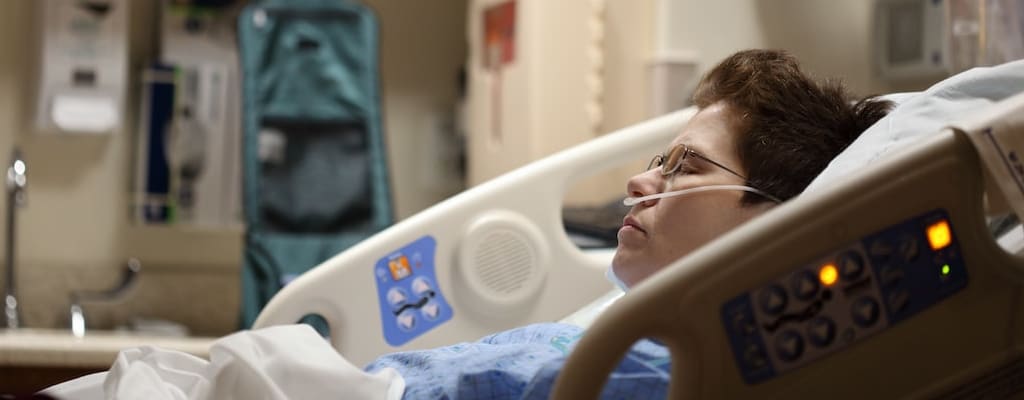doctors make the worst patients: Idiom Meaning and Origin
What does ‘doctors make the worst patients’ mean?
The idiom "doctors make the worst patients" means that people who are experts in a certain field often neglect their own needs or fail to follow their own advice when it comes to their area of expertise.

Idiom Explorer
The idiom "the good doctors" refers to a group of qualified medical professionals who are trustworthy, knowledgeable, and provide excellent care to their patients. They possess expertise and competence, ensuring the well-being and recovery of individuals in need.
The idiom "good doctors" refers to highly skilled or proficient professionals in their field. It suggests that these individuals possess exceptional abilities and are reliable in providing effective solutions or treatments.
The idiom "easier said than done" means that something is much more difficult to accomplish than it sounds or appears to be.
The idiom "do someone like that" means to treat someone in a negative or unfair manner, often involving deception or harm. It suggests behaving unkindly or spitefully towards someone and implies a sense of betrayal or mistreatment.
The idiom "do somebody wrong" means to treat or behave towards someone in an unfair or unjust manner.
The idiom "doomed if you do, doomed if you don't" refers to a lose-lose situation, where any choice or action will lead to negative consequences or a bad outcome.
The idiom "don't go there" is used to advise someone to avoid discussing a particular topic or situation, usually because it is sensitive, controversial, or likely to cause conflict.
The idiom "devil lies in the details" means that small things, often overlooked or ignored, can cause significant problems or complications in a larger project or situation.
The idiom "death warmed up" means to look extremely ill or to have a very pale and sickly appearance.
The idiom "deal a bad hand" means to put someone at a disadvantage or give them unfavorable circumstances. It is often used in reference to a situation where someone is given unfair or unfortunate circumstances beyond their control.
Paradoxical Ailments
Doctors make the worst patients because they often fail to follow their own medical advice. This idiom, commonly used in English-speaking countries, highlights the irony of healthcare professionals neglecting their own health despite their extensive knowledge and expertise.
This proverbial statement conveys a general truth about the behavior of doctors. It is often used in a lighthearted or humorous context to poke fun at the fact that doctors prioritize the well-being of their patients over their own. The idiom "doctors make the worst patients" reflects the observation that medical professionals sacrifice their personal health and self-care for the sake of their profession.
Although the origin and historical usage of this idiom remain somewhat elusive, it is likely rooted in the recognition of doctors' pattern of behavior. Throughout history, doctors have been known to prioritize the care of others above themselves. The adoption of this idiom highlights the irony of healthcare professionals neglecting their own well-being despite their expertise in promoting health.
One reason doctors make the worst patients is their tendency to have difficulty following medical advice or accepting treatment recommendations. Due to their extensive medical knowledge and experience, they may believe they can successfully diagnose and treat themselves. This sense of self-sufficiency and overconfidence in their abilities can lead to a reluctance to seek medical attention.
Additionally, the demanding nature of the medical profession itself contributes to doctors neglecting their own health. Long working hours, high stress levels, and challenging decision-making scenarios can take a toll on their well-being. Doctors often prioritize the care of others over their own self-care, which can result in neglecting their own health needs.
Furthermore, doctors may have greater access to medical resources and information, which can lead to suboptimal outcomes when treating themselves. They may self-diagnose or self-treat their ailments based on their knowledge and experience, rather than seeking professional medical advice. This can result in overlooking potentially serious health issues or failing to follow best practices.
While the idiom "doctors make the worst patients" is widely accepted, it is important to recognize that not all doctors fit this stereotype. Many medical professionals actively prioritize their own health and well-being, understanding the importance of self-care in order to provide the best care for their patients.
It is worth noting that this idiom also relates to the idioms "good doctors" and "the good doctors." These idioms refer to doctors who consistently provide high-quality healthcare and demonstrate exceptional medical skills. The irony lies in the fact that these "good doctors" may not always prioritize their own health, despite their ability to deliver outstanding care to their patients.
The idiom "be taken ill" connects to the idea that doctors, despite their medical knowledge, are not immune to falling ill themselves. They may face the same health challenges as anyone else and may need medical attention like any other patient. This highlights the fact that doctors, despite their expertise, are still vulnerable to illness and must rely on their fellow medical professionals for care.
The idiom "doctors make the worst patients" reflects the common observation that medical professionals often neglect their own health despite their extensive medical knowledge and expertise. While not all doctors fit this stereotype, it serves as a lighthearted reminder of the challenges and complexities faced by healthcare professionals. By understanding the reasons behind this idiom, we gain insight into the unique circumstances and pressures experienced by doctors, leading to a more nuanced understanding of their role in healthcare.
Example usage
Examples of how the idiom "doctors make the worst patients" can be used in a sentence:
- A famous surgeon became a patient himself and realized how difficult it is to follow the medical advice given to others; doctors really do make the worst patients.
- When the physician fell ill, he ignored his own symptoms and insisted on self-diagnosing, proving once again that doctors make the worst patients.
- After years of treating patients, the doctor became stubborn and unwilling to accept her own diagnosis, demonstrating that doctors indeed make the worst patients.
More "Health" idioms



